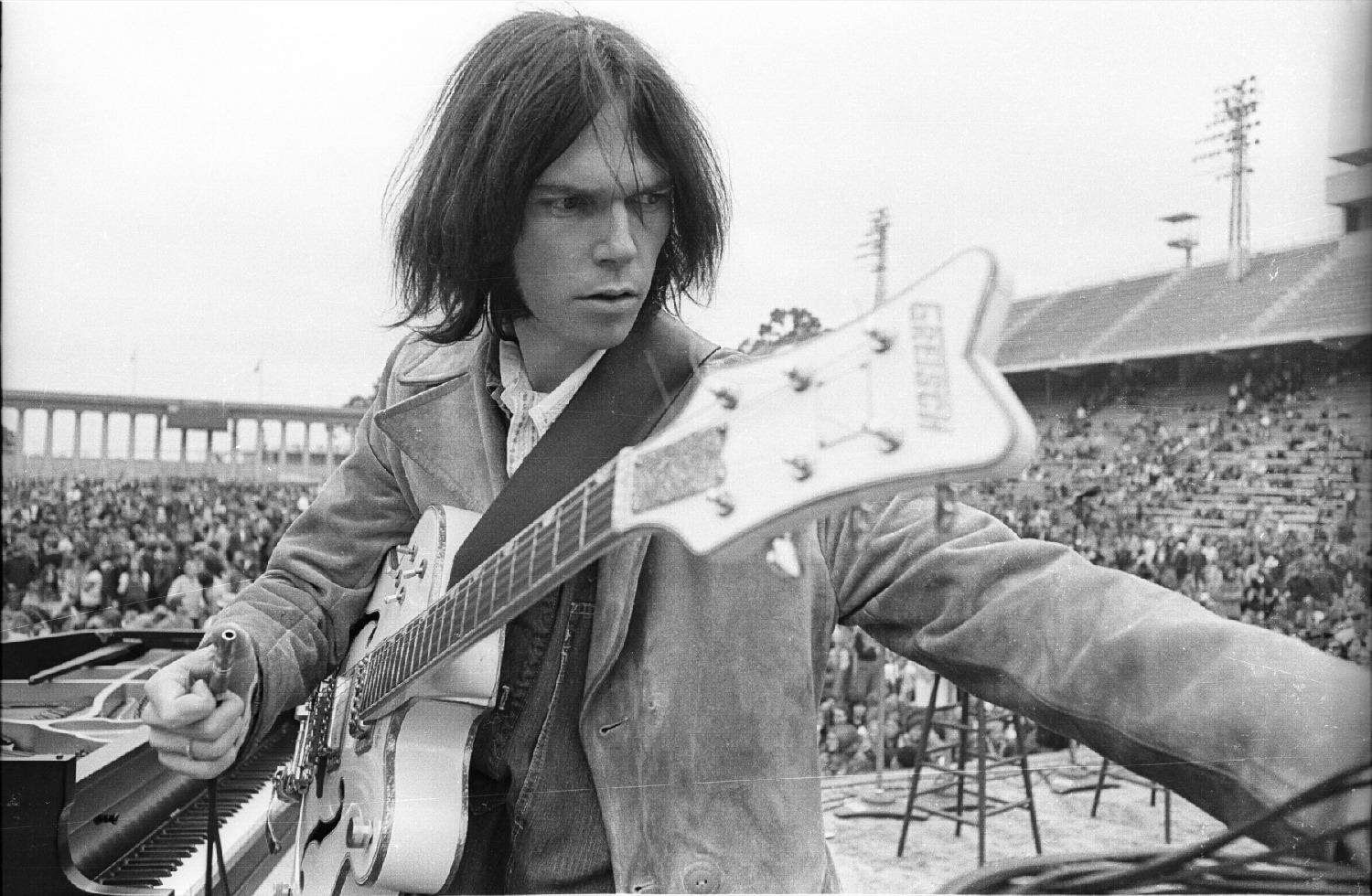Neil Young, a name that resonates through the corridors of rock history, is not just a musician; he’s a cultural icon. Born in Toronto, Canada, Young's music transcends genres, making him one of the most influential artists of his time. With a career that spans over five decades, his songs have become anthems for generations, echoing the sentiments of love, loss, and social justice. Neil Young's unique blend of folk, rock, and country has crafted a sound that is distinctly his own, captivating audiences worldwide.
The story of Neil Young is one of passion, persistence, and profound artistry. From his early days in the Canadian music scene to his role as a founding member of Buffalo Springfield and Crosby, Stills, Nash & Young, his contributions to music have shaped not only his career but also the musical landscape of the 20th century. His timeless classics, such as "Heart of Gold" and "Rockin' in the Free World," continue to inspire new generations of musicians and fans alike.
As we delve deeper into Neil Young's life and legacy, we uncover the complexities of his character, the evolution of his music, and the impact he has made on society. This article will explore the various facets of Neil Young's career, including his biography, musical influences, activism, and more, providing a comprehensive look at one of the most iconic figures in music history.
What is Neil Young's Biography?
Neil Young was born on November 12, 1945, in Toronto, Ontario, Canada. His father, Scott Young, was a journalist and a novelist, while his mother, Ruth, was a homemaker. Young's family moved to Winnipeg, Manitoba, when he was young, and it was there that he developed an interest in music. By the age of 12, he was learning to play the guitar and forming bands with friends.
| Detail | Information |
|---|---|
| Name | Neil Percival Young |
| Date of Birth | November 12, 1945 |
| Birthplace | Toronto, Ontario, Canada |
| Genres | Rock, Folk, Country |
| Instruments | Guitar, Piano, Harmonica |
| Years Active | 1960s - Present |
| Notable Bands | Buffalo Springfield, Crosby, Stills, Nash & Young |
| Website | neilyoung.com |
What Are Neil Young's Major Musical Contributions?
Neil Young's discography is nothing short of impressive, with over 40 studio albums to his name. His ability to seamlessly blend various musical styles has allowed him to create a diverse catalog that appeals to a wide audience. Some of his most notable contributions include:
- Buffalo Springfield: Young was a key member of this iconic band in the 1960s, known for hits like "For What It's Worth."
- Crosby, Stills, Nash & Young: The supergroup's harmonies and political themes resonated widely during the Vietnam War era.
- Solo Career: Albums such as "Harvest" and "After the Gold Rush" solidified his status as a solo artist.
- Innovative Sounds: Young is known for experimenting with different genres, including rock, folk, and electronic music.
How Has Neil Young Influenced Modern Music?
Neil Young's influence extends beyond his own music; he has shaped the careers of countless artists across various genres. His distinct sound and songwriting style have inspired musicians to explore their creativity and address social issues through music. Some notable influences include:
- Grunge Movement: Young's raw sound and themes of disillusionment paved the way for bands like Nirvana and Pearl Jam.
- Indie Rock: Artists such as Wilco and My Morning Jacket have cited Young as a significant influence on their music.
- Activism: Young's commitment to social and environmental causes has inspired musicians to use their platforms for advocacy.
What Activism is Neil Young Known For?
Neil Young is not just a musician; he's also a passionate activist. Throughout his career, he has used his voice to advocate for various causes, including:
- Environmental Issues: Young has been an outspoken advocate for environmental protection and sustainable practices.
- Indigenous Rights: He has supported Indigenous communities and their struggles against land exploitation.
- Anti-War Stance: His music often reflects his opposition to war and violence, particularly during the Vietnam War.
What Are Some of Neil Young's Most Iconic Songs?
Neil Young's songwriting has produced numerous iconic songs that have left a lasting impact on music. Some of his most celebrated tracks include:
- “Heart of Gold” – A poignant reflection on the search for meaning and purpose.
- “Rockin' in the Free World” – A powerful anthem addressing social issues and political discontent.
- “Cinnamon Girl” – A quintessential example of Young's blend of rock and folk influences.
- “Old Man” – A deeply personal song that reflects on aging and life experiences.
How Has Neil Young's Music Evolved Over the Years?
Neil Young's music has continuously evolved, reflecting his personal growth and the changing musical landscape. From the folk-infused sounds of his early career to the heavier rock anthems of the 1970s, Young has never shied away from experimenting with new genres and technologies. In recent years, he has embraced digital music while remaining loyal to his roots in analog recording.
What is Neil Young's Legacy?
Neil Young's legacy is one of artistic integrity, innovation, and social consciousness. He has proven that music can be a powerful tool for change, and his influence will continue to be felt for generations to come. As a musician, activist, and cultural icon, Neil Young's contributions to the world of music and society at large are immeasurable.
In conclusion, Neil Young is more than just a musician; he is a voice of a generation. His dedication to his craft, commitment to activism, and ability to connect with audiences have solidified his place in music history. As we celebrate Neil Young's extraordinary career, we are reminded of the power of music to inspire, provoke thought, and bring about change.
Unraveling The Mystery: Is Luke Steele Married?
Unveiling The Iconic Nicki Minaj Chun Li Outfit: A Fashion Statement
Understanding The LA City Mayor Salary: A Comprehensive Overview


